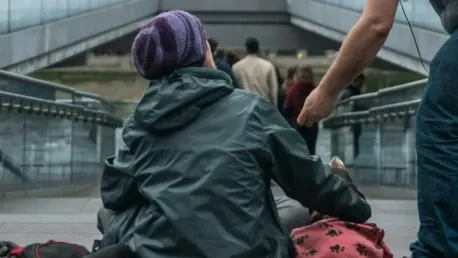Lagos State, renowned for its bustling economy and vibrant cultural scene, is currently grappling with a severe crisis: the escalating rates of homelessness driven by the rigorous enforcement of Urban Planning Laws by the Lagos State Government. These laws, designed to uphold urban planning standards and adhere to the state’s master plan, have resulted in considerable societal upheaval, disproportionately impacting economically disadvantaged populations living in substandard conditions. The government’s determination to enforce these laws has led to the demolition of homes in slums and coastal regions, often without providing adequate alternative solutions for the displaced residents, thus exacerbating the homelessness issue.
Government’s Drive for Urban Planning and Its Consequences
The Lagos State Government has been unwavering in enforcing urban planning laws, aiming to enhance the urban landscape and mitigate risks associated with unregulated housing developments, such as slum proliferation and coastal erosion. However, these well-intentioned efforts have come at a significant human cost. Low-income families, predominantly residing in slums and coastal regions, have found their homes demolished to make way for planned urban development. The detrimental impact on these families is both emotional and financial, as they are often left without adequate compensation or relocation plans.
The Ayetoro community in the Yaba Local Council Development Area (LCDA) serves as a stark example. Approximately 3,000 residents faced the sudden demolition of their homes, plunging them into emotional and financial turmoil. Similarly, the residents of the Mayegun Waterfront Scheme in Eti Osa Local Government Area are contending with the imminent threat of eviction. Government agencies such as the Task Force and the Lagos State Emergency Management Agency (LASEMA) have defended these demolitions by pointing to the risks of erosion and distortions in the master plan. Nevertheless, the human cost remains profound, highlighting the need for a more balanced approach that considers the welfare of displaced individuals.
Affected Communities and the Human Cost
Displacement owing to stringent urban planning enforcement has resulted in significant instability and hardship for thousands of families. As seen in the cases of Ayetoro and Mayegun, these are not isolated incidents. Regulatory crackdowns have created a pattern of targeting informal settlements, leading to a continuous cycle of displacement. Recurrent demolitions have left many families in a perpetual state of insecurity and homelessness, causing both economic and emotional distress. The displaced individuals often relocate to other informal settlements, which are also at risk of facing similar fates, thereby perpetuating the cycle of uncertainty and hardship.
This cyclical displacement scenario highlights the pressing need for more humanitarian urban development policies. While urban planning is crucial for sustainable development, it should not be implemented at the expense of human dignity and security. The plight of the affected communities calls for a reevaluation of current strategies to ensure they do not disproportionately harm low-income families. There must be a concerted effort to strike a balance between urban renewal and the provision of adequate support and housing alternatives for those impacted by these policies.
Government’s Rationale and Continued Actions
Despite the widespread emotional and financial turmoil caused by these policies, the Lagos State Government remains resolute in its strategy to sanitize and enhance the state through rigorous enforcement of urban planning laws. This includes issuing contravention notices to property owners and occupants, demanding proper documentation to justify their occupation. In the Mayegun Waterfront Scheme alone, more than 280 property owners received such notices, with non-compliance resulting in further demolitions. This steadfast approach underscores the government’s commitment to creating a regulated urban environment, even at the expense of displacing vulnerable populations.
While the government’s intentions may be rooted in the desire to prevent slum development and enforce a safer, more organized cityscape, the repetitive cycle of demolitions elucidates the severe consequences for displaced communities. The ongoing enforcement of these laws reveals a critical gap between urban planning objectives and the need to safeguard the well-being of all citizens. A more holistic approach is necessary—one that integrates urban development with compassionate, inclusive strategies that provide adequate support for affected residents.
Balancing Urban Development with Humanitarian Needs
The impacts of stringent urban planning policies are not confined to immediate housing loss; displaced residents face mounting financial burdens and emotional distress as they scramble to find new shelters. For instance, demolitions under the Dolphin Estate Bridge, which had become home to hundreds, exemplify the widespread housing instability engendered by these policies. The cascading effects extend beyond displaced families, straining community resources and social safety nets, and contributing to a broader homelessness crisis.
The escalating rate of homelessness calls for a thorough examination of the interplay between urban development and human welfare. Ensuring humane and sustainable urban planning requires proactive measures to provide alternative housing solutions for those affected by demolitions. A constructive dialogue between the government and the affected communities is essential to develop inclusive plans that protect vulnerable socioeconomic groups. This would involve crafting policies that balance urban renewal goals with the imperative of mitigating poverty and homelessness, fostering a just and equitable society.
Broader Community and Economic Impacts
Lagos State, known for its thriving economy and lively cultural landscape, is currently facing a severe crisis: rising homelessness due to the strict enforcement of Urban Planning Laws by the Lagos State Government. These laws aim to maintain urban planning standards and align with the state’s master plan, but they have led to significant social upheaval, especially affecting economically vulnerable populations living in poor conditions. The government’s commitment to enforcing these laws has resulted in the demolition of homes in slums and coastal areas, often without offering adequate alternative housing solutions for the displaced residents. This rigid approach has only worsened the homelessness problem, as people are left without shelter or assistance. Consequently, many families are forced onto the streets, further straining the social fabric and presenting new challenges for the state to address. The pressing issue now calls for a more balanced approach that considers both urban development and the well-being of its residents.









